When my son gets sick, I can visit his pediatrician. After a lab test confirms a bacterial infection, he gets a prescription for antibiotics. Problem solved.
But what if I weren’t able to call the doctor?
What if the pharmacies weren’t open and I couldn’t buy medicine?
Or what if there was an outbreak of antibacterial-resistant bacteria?
These are just some of the reasons why preppers should stockpile natural antibiotics.
How to Use Natural Antibiotics
Numerous studies show that natural antibiotics are just as good as pharmaceuticals. In some cases, studies show that natural antibiotics are even more effective than pharmaceuticals.
Keep in mind that studies usually don’t use the raw plant. The scientists use strong extracts from the plants when doing their experiments. The results the scientists get may not reflect the results you’d get by eating the plant.
For example, garlic is one of the most well-known natural antibiotics. But it is the compound allicin in garlic that kills bacteria.
You’d have to eat a lot of garlic to get enough allicin to treat a bacterial infection.
Likewise, most teas aren’t potent enough to fight infection.
You could drink gallons of tea and still not make a dent in the bacterial population (though drinking fluids is essential when sick!).
To make sure natural antibiotics are potent enough, you will need to:
- Buy them in tincture form – read about the best tinctures to have on hand
- Make your own tinctures
- Extract the essential oils
- Boil down to create a resin
Fish Antibiotics Option
If your main interest in natural antibiotics is for disaster prepping, you should know that fish antibiotics are also an option.
Fish antibiotics are the same as antibiotics prescribed for humans. The difference is that you don’t need a prescription.
Learn more about taking fish antibiotics.
Top 11 Natural Antibiotics for Preppers
1. Garlic
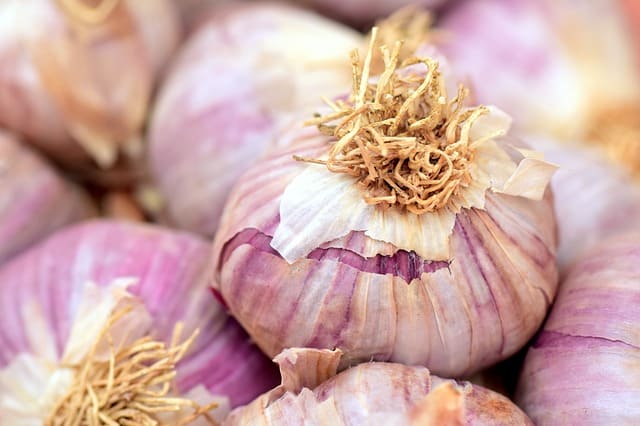
Garlic contains allium, which kills both gram-positive and gram-negative bacteria. Studies have found it effective against various bacterial and fungal infections.
The allium in garlic is particularly effective against intestinal infections, such as those that cause diarrhea. Garlic is even effective against bacteria that have become resistant to antibiotics.
- How to Use: Tinctures or drink the juice of raw garlic
- Best For: Intestinal infections, but also effective against many bacterial and fungal infections.
2. Clove
Clove is not only a potent natural antibacterial, but it also reduces inflammation and pain.
Since it doesn’t have any adverse effects associated with it, you can even take clove oil daily to prevent infections.
This could be very smart to do during hygiene crises, such as after a flood disaster.
- How to Use: Essential oil or tincture
- Best For: Food poisoning, oral infections (including thrush), external use on skin infections
3. Cinnamon
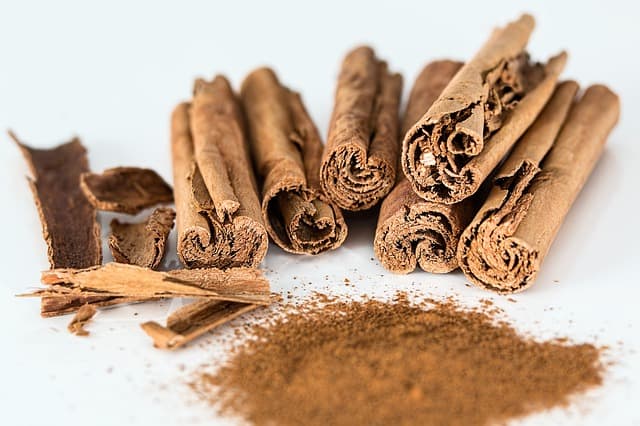
Did you know thieves who would steal jewelry from dead bodies used to take a concoction made of cinnamon? The natural remedy would keep them from getting sick.
Numerous studies support cinnamon’s natural antibacterial properties. It has been shown to effectively treat staph, E. coli, streptococcus, and antibiotic strains of bacteria.
Just be warned that it may cause skin irritation, so test a small amount before putting cinnamon oil on the skin.
- How to Use: Essential oil or capsules
- Best For: Strep throat, staph infections, diarrhea
4. Hot Peppers
Hot peppers, such as habanero, contain a compound called capsicum. It is one of the most potent natural antibiotics available.
While it may seem counterintuitive to eat spicy foods when you have an upset stomach, capsicum is very effective against food poisoning and GI infections. Yes, your bowels will move (which will help remove the pathogens from your GI tract).
Capsicum also increases body temperature, which in turn helps your body fight viral and bacterial infections.
You can use hot pepper extracts on your skin (such as by making a salve). However, some people have a bad reaction to it. So always test the salve on a small portion of your skin before applying it to a skin infection.
- How to Use: Juice of the pepper, essential oil
- Best For: Fungal infections, food poisoning, staph infections, ear infections, cholera, h. pylori, listeria, viral infections, skin infections
5. Oregano
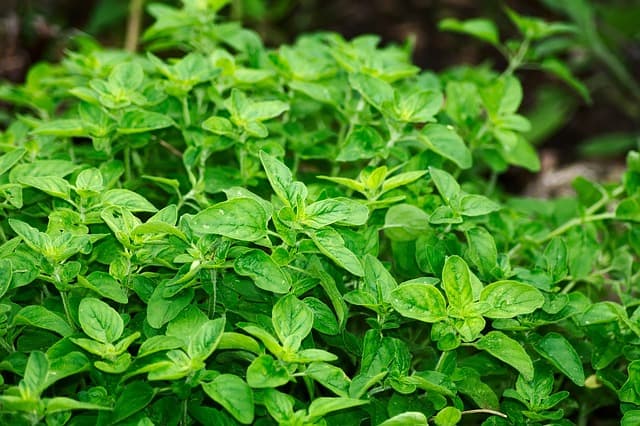
Oregano is another one of those potent natural antibiotics that only works in high concentrations.
You’d have to eat a massive amount of oregano to fight infection! Thus, you must make a tincture or oil extraction of oregano.
I recommend that you grow a lot of oregano as part of a medicinal garden. Then you can make oregano oil from your harvest. Otherwise, buy oil of oregano online.
- How to Use: Oil or tincture; drinking oregano tea will only have mild benefits; may burn if applied externally
- Best For: Most types of poisoning (mainly E. coli), athlete’s foot, ringworm, tooth infections, insect bites, muscle pain
6. Colloidal Silver
Colloidal silver is made from microscopic particles of silver. While this isn’t something you can make yourself, it is an excellent natural antibiotic to stockpile.
Silver is a potent antibiotic. It has also been shown to increase the antimicrobial effects of pharmaceutical antibiotics when taken with them.
While you can take colloidal silver orally, it is best to use it externally to treat wounds. The silver can build up inside body tissues if you take too much of it.
- How to Use: Externally
- Best For: Treating burns and wounds
7. Echinacea
Echinacea has numerous health benefits, including boosting immunity, reducing inflammation, and fighting against pathogens.
It is most commonly used for treating respiratory infections. However, you can use Echinacea for a wide variety of ailments.
Just be warned that the Echinacea tea you find in supermarkets isn’t potent enough to treat a serious infection. You’ll want to use a tincture.
The tincture can be squirted directly on the throat (for throat infections), consumed (for other internal infections), or applied directly to the skin (for wounds or yeast infections).
- How to Use: Tincture, tea
- Best For: Respiratory infections, throat infections, viral infections (including the flu), urinary tract infections, yeast infections
8. Apple Cider Vinegar
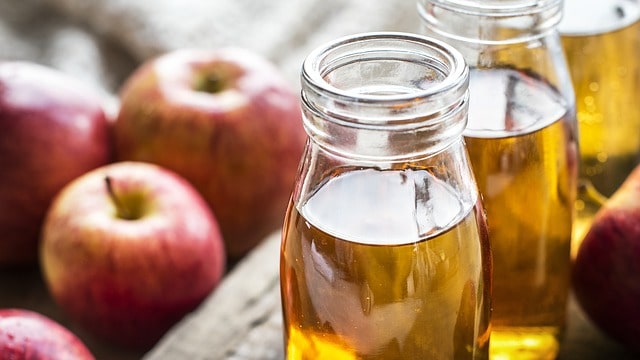
I love this natural antibiotic because you can find it in your pantry. Vinegar doesn’t go bad, so you can stockpile it easily too. Plus, it isn’t that difficult to make your own vinegar.
ACV has many health benefits, including antimicrobial and antiviral.
While taking it internally might help boost your immune system, it is most effective when applied directly to the infection.
That means using ACV as a gargle for sore throats and tooth infections.
- How to Use: Diluted as a gargle
- Best For: Throat infections, tooth infections
9. Probiotics
Probiotics are the “good” bacteria that are found in your body.
We are becoming increasingly aware of how important they are for everyday health. They can also be used to fight bacterial infections.
Probiotics help infections by literally killing off the “bad” bacteria causing the infection. They’ll help keep your flora balanced too.
Remember that even natural antibiotics can kill good bacteria, so it’s a good idea to take probiotics during treatment.
It’s a bit hard to stockpile probiotics because they go bad quickly. However, you can make your own probiotics, such as with Lacto fermentation.
- How to Use: Consume with food; take with other natural antibiotics
- Best For: GI infections
10. Cranberries
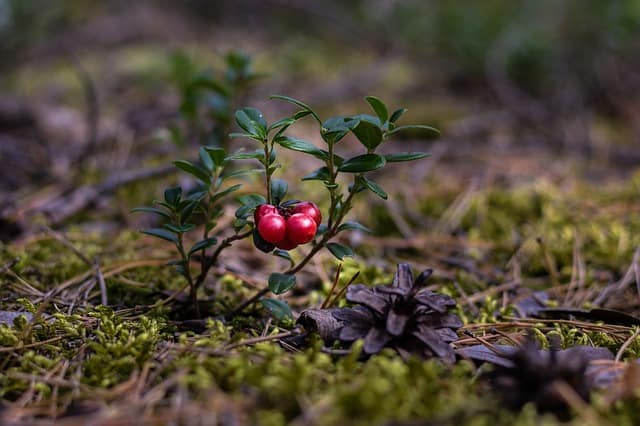
Most women already know that (unsweetened) cranberry juice is a powerful natural cure for urinary tract infections.
The powerful antioxidants in cranberries have also been shown to have an antibacterial effect on other infections.
Know that many types of bacteria feed on sugar. So it is always best to drink unsweetened cranberry juice.
Heating the juice (which occurs in virtually all store-bought juice) will also destroy antioxidants.
If possible, it is best to make your own cranberry juice by blending the berries with some water in a blender and then straining it.
- How to Use: Drink unsweetened juice or take capsules
- Best For: UTIs, food poisoning
11. Nettles
I love nettles because a) they are edible, b) they are VERY nutritious, and c) they grow like weeds.
Nettles are also one of the best natural antibiotics that people don’t know about.
The antibacterial properties of nettles come from their potent antioxidants. These antioxidants will not only kill bacteria but will boost your immune system so you can fight off the infection.
Unfortunately, nettles haven’t been as extensively studied as the other natural antibiotics here, so we don’t know their full potential.
- How to Use: Steam and eat, made into a tincture, essential oils
- Best For: Typhoid fever, food poisoning
Have you used natural antibiotics? What ones would you add to the list?
https://pubmed.ncbi.nlm.nih.gov/10496642/
https://www.nccih.nih.gov/health/colloidal-silver
https://www.sciencedirect.com/science/article/abs/pii/S1004954108602347
https://pubmed.ncbi.nlm.nih.gov/23484421/
https://www.webmd.com/vitamins/ai/ingredientmono-644/oregano https://link.springer.com/article/10.1007/BF01099735
https://journals.asm.org/doi/full/10.1128/aem.01221-16
https://www.ncbi.nlm.nih.gov/pmc/articles/PMC3769004/https://www.mdpi.com/1420-3049/14/2/586/htm
https://www.mdpi.com/1420-3049/14/2/586/htm
https://www.nytimes.com/2009/09/08/health/08real.html
https://www.ncbi.nlm.nih.gov/pmc/articles/PMC4586554/
https://www.sid.ir/En/Journal/ViewPaper.aspx?ID=193051
https://www.thehealthyhomeeconomist.com/how-to-use-best-natural-antibiotics/
https://www.sciencedirect.com/science/article/abs/pii/S1549963407000469
https://www.karger.com/Article/Abstract/93928
https://www.sciencedirect.com/science/article/abs/pii/S0021979704001638
https://www.japsonline.com/admin/php/uploads/904_pdf.pdf
https://www.sciencedirect.com/science/article/abs/pii/S0023643808000029https://onlinelibrary.wiley.com/doi/full/10.1111/1750-3841.12434
https://www.sciencedirect.com/science/article/abs/pii/S1079210411000771
https://hollywoodhomestead.com/gut-flora-dysbiosis/
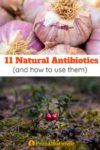





















I’m very grateful for this Publication. It’s a Job well done.
Thank you very much and be Blessed Abundantly.
Joseph G. T.
Tea Tree Oil is highly recommended for its ani-fungal / bacterial properties. You can use it for dandruff (which is a fungal issue) down to athlete’s foot – head to toe in other words! The benefits are too numerous to list them all!
Yes, I have heard that tea tree oil is useful for treating rosacea. Would you use it directly on the skin or in a carrier oil? And if used in an oil, what ratio should be used? Thank you.
Can you recommend simple books to learn about and how to use these natural plants,oils,tea’s,salves,etc to get basics down first,but useful. Thank you Stephanie.????
I would probably start by learning how to ID medicinal plants in your area. The book “Medicinal Plants of North America: A Field Guide” is a good place to start, but you might even want to get a more location-specific plant field guide.
The book “Rosemary Gladstar’s Medicinal Herbs: A Beginner’s Guide” has good info on how to make basic teas, salves, etc. for herbal medicine. “Alchemy of Herbs” is also highly recommended. (all links go to Amazon.)
Lemongrass oil is great for muscle spasms. I make a 4 oz bottle using sweet almond oil with 30 drops of lemongrass. You can use more drops even going 1/3 lemongrass and 2/3 almond oil or any carrier oil of your choice. I know people who use it one their muscles straight but I found that I can use less when using a carrier oils and it’s a lot cheaper. Good oils are not cheap but fortunately lemongrass is pretty reasonable. No matter how you mix it or not you should do a patch test first.
Interesting stuff Mickey, I like the idea of using cheaper oils as a carrier, very smart.
Echinacea tea has been used by Natives for millennia. But be aware. There are three different kinds of them. Two of the three are medicinal and one is strictly for show. A friend of mine who owns a nursery explained that to me. He gave me the most potent form and it’s amazing how well it works!
For leg cramps: Theraworkx relief. Available on Amazon.com
What can i use to stop and prevent muscle cramps i get them from my toes to my thighs it especially on my thighs which are so horrible painful please help
Water
Bananas
Potassium
Magnesium
Very useful tips for health improvements. Thanks.
How does one make tinctures of the above at home? Or how to extract the essential oils?
Hi Sam – Check out this post for more info https://www.primalsurvivor.net/natural-antibacterial-medicinal-plants/
I was told that essential oils were not to be consumed. Is that so?
Gee whiz. I hate to be responding SIX years later, but it’s a good question that deserves an answer!
It depends on the type of oil. Most oils (if not all) will need to be diluted in a carrier oil first. I like using olive oil, but any other safe-to-consume oil that’s liquid at room temperature will do just fine, too. Coconut oil, though not liquid at room temperature, can also be useful for some purposes, such as using the oregano oil as an additive for pulling oil.
A good example of a consumable essential oil that MUST be diluted is oregano oil. It’s a powerful antimicrobial (kills all manner of baddies… but bear in mind it doesn’t discriminate and will kill good bacteria and such, too), and has saved me from worlds of hurt (not to mention doctor bills I wouldn’t have been able to pay). I keep some onhand at all times.
I buy it full strength and dilute it roughly 10 parts carrier oil to 1 part oregano oil (depending on the potency of the oregano oil, that is. Most of it is quite potent) into a dropper bottle, then when I need it (for example, while I was stuck living in a house that was riddled with black mold), I’ll take 2-3 dropperfuls 3-4x a day.
It’s knocked out everything from tooth infections (to get me through until I could get to a dentist to get the tooth properly dealt with) to strep throat to bacterial pneumonia and more!
If you haven’t already, do take the time to look into it, read several herbalism articles and follow those up with looking up related studies. That’s just one of many, many examples.
This is likely far to late for you to find helpful, but perhaps someone else reading through these comments will find it intriguing enough to do some research into the topic for this and many, many other very useful essential oils!
What is the difference between an oil and an extract? Thanks, Mark
Hi Mark,
Essential Oil is a lot more concentrated than plant extracts.